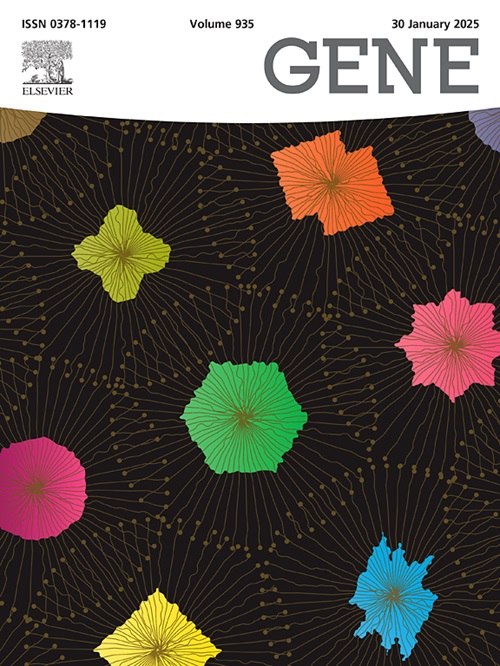揭示非致命氧化应激对大肠杆菌复制启动的影响。
IF 2.6
3区 生物学
Q2 GENETICS & HEREDITY
引用次数: 0
摘要
细胞周期的适应性有助于细菌应对不利的压力。氧化应激对大肠杆菌复制启动的影响仍不清楚。这项研究考察了外源氧化剂和基因突变介导的氧化应激对复制启动的影响。我们发现,0-0.5 mM H2O2 以浓度依赖的方式抑制大肠杆菌的复制启动,但不会导致细胞死亡。缺失抗氧化酶 SodA-SodB、KatE 或 AhpC 会导致复制启动延迟。抗氧化剂N-乙酰半胱氨酸(NAC)可促进ΔkatE和ΔsodAΔsodB突变体的复制启动。我们随后探讨了氧化应激抑制复制启动的介导因素。碱基切除修复 DNA 糖基化酶 MutY 能抵抗 H2O2 对复制启动的抑制。Lon 蛋白酶缺乏能消除外源 H2O2 暴露介导的复制启动抑制,但不能消除 katE 或 sodA-sodB 缺失介导的复制启动抑制。clpP和hslV的缺失进一步延迟了ΔktaE突变体的复制启动,而hflK缺失则促进了ΔkatE和ΔsodAΔsodB突变体的复制启动。总之,非致命性氧化应激抑制复制启动,AAA+蛋白酶参与其中,并在大肠杆菌中显示出灵活的调节作用。本文章由计算机程序翻译,如有差异,请以英文原文为准。
Uncovering the effects of non-lethal oxidative stress on replication initiation in Escherichia coli
Cell cycle adaptability assists bacteria in response to adverse stress. The effect of oxidative stress on replication initiation in Escherichia coli remains unclear. This work examined the impact of exogenous oxidant and genetic mutation-mediated oxidative stress on replication initiation. We found that 0–0.5 mM H2O2 suppresses E. coli replication initiation in a concentration-dependent manner but does not lead to cell death. Deletion of antioxidant enzymes SodA-SodB, KatE, or AhpC results in delayed replication initiation. The antioxidant N-acetylcysteine (NAC) promotes replication initiation in ΔkatE and ΔsodAΔsodB mutants. We then explored the factors that mediate the inhibition of replication initiation by oxidative stress. MutY, a base excision repair DNA glycosylase, resists inhibition of replication initiation by H2O2. Lon protease deficiency eliminates inhibition of replication initiation mediated by exogenous H2O2 exposure but not by katE or sodA-sodB deletion. The absence of clpP and hslV further delays replication initiation in the ΔktaE mutant, whereas hflK deletion promotes replication initiation in the ΔkatE and ΔsodAΔsodB mutants. In conclusion, non-lethal oxidative stress inhibits replication initiation, and AAA+ proteases are involved and show flexible regulation in E. coli.
求助全文
通过发布文献求助,成功后即可免费获取论文全文。
去求助
来源期刊

Gene
生物-遗传学
CiteScore
6.10
自引率
2.90%
发文量
718
审稿时长
42 days
期刊介绍:
Gene publishes papers that focus on the regulation, expression, function and evolution of genes in all biological contexts, including all prokaryotic and eukaryotic organisms, as well as viruses.
 求助内容:
求助内容: 应助结果提醒方式:
应助结果提醒方式:


